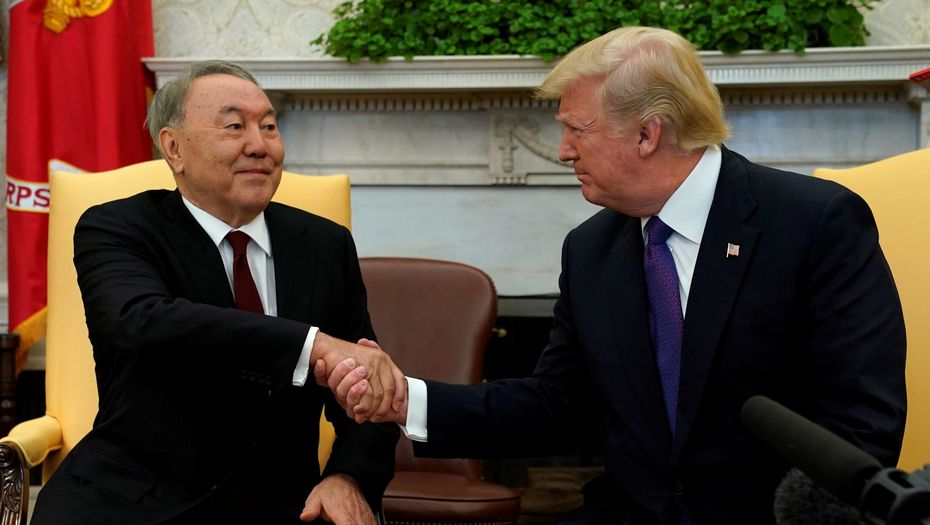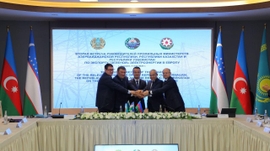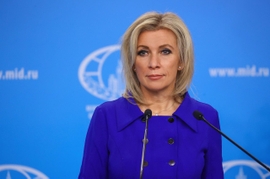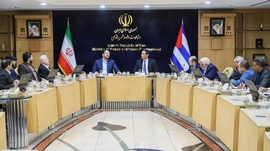American and Kazakhstani companies signed $7 billion worth of deals during President Nursultan Nazarbayev’s three-day visit to the U.S., from January 16-18, which started with a stop at the White House and a meeting with President Donald Trump.
“I am pleased that President has shared his plan for Kazakhstan to become a top 30 global economy by 2050,” Trump said at a joint press conference following their meeting on Tuesday, according to KazInform news agency.
“He is also working to improve Kazakhstan's business environment which will create new opportunities for American companies who are over there and lots of jobs are being provided to both countries,” Trump said.
Presidents Trump and Nazarbayev pledged to promote a fair and reciprocal economic partnership that increases bilateral trade and investment and creates jobs and opportunities in both countries.
The $7 billion in more than 20 contracts signed are expected to boost two-way economic ties. Agreements signed include those between airplane manufacturer Boeing and SCAT Airways as well as with Air Astana; General Electric (GE) Transportation, GE Digital, Chevron, Air Astana, KazTemirZholy, SCAT Airlines, and the Samruk-Kazyna National Wealth Fund.
With 18 million people and a gross domestic product of over $156 billion, Kazakhstan is Central Asia’s largest country and economy. Nazarbayev is looking to push Kazakhstan up from the world’s 48th largest economy to at least its 30th, by 2050. With $1.9 billion in two-way trade in 2016 according to the Office of the U.S. Trade Representative, Kazakhstan ranks as the U.S.’ 78th largest trading partner. Goods exports stood at $1.1 billion that year, while imports amounted to $742 million.
Trump encouraged Kazakhstan to implement its World Trade Organization obligations, uphold fair labor practices, enforce the sanctity of contracts, and protect intellectual property rights. The two sides also reinforced their commitment to the Central Asia Trade and Investment Framework Agreement (TIFA), and welcomed Afghanistan’s participation in future TIFA Council meetings.
"America ranks second in terms of direct investment in Kazakhstan's economy,” Nazarbayev said, according to BNewz.kz.
“Since the years of independence [1991], more than $50 billion has been invested by your companies in Kazakhstan,” he said. “Last year, the trade turnover between our countries amounted to about $2 billion. In our country, more than 500 [American] companies operate in energy, transport, innovation, medicine and other spheres with American capital. Among our major partners are Chevron, Exxon Mobil, General Electric, Haliburton and other companies," Nazarbayev told American business leaders.
“We have introduced a visa-free regime for citizens of 62 countries, including the U.S.,” he said, also mentioning that Kazakhstan has “liberalized legislation … in the private sector, and 11 special economic zones and 22 industrial zones operate” in the country, making foreign investment into Kazakhstan’s economy more attractive.
Kazakhstan’s economy is heavily reliant on oil, gas and mineral extraction. The country ranks in the world’s top 15 for proved oil and gas reserves, and is in the top 20 for exports of both.
Joint development of the world’s sixth largest oilfield, known as Tengiz and located in northwestern Kazakhstan near the Caspian Sea, between Chevron and Kazakhstan’s state oil enterprises represents more than 25 years of bilateral economic partnership. The field produces about one third of the country’s oil, and is expected to increase by about 260,000 barrels per day, or 12 million tons per year, once the expansion is complete in 2022.
In 2016, a $36.8 billion expansion was announced, after developers realized the field ranks as the world’s deepest producing supergiant oil field. Close by is another reservoir known as the Korolev Field. Chevron’s share of daily production from the two fields in 2016 averaged 263,000 barrels of crude oil, 375 million cubic feet of natural gas and 22,000 barrels of natural gas liquids.
Chevron signed a Memorandum of Understanding with the Kazakhstani Ministry of Energy to use $251 million of reinvestment funds to finance profitable projects in Kazakhstan.







 President Ilham Aliyev praised Azerbaijan’s cultural diversity as a key factor in fostering peace, stability, and unity within the country, where a...
President Ilham Aliyev praised Azerbaijan’s cultural diversity as a key factor in fostering peace, stability, and unity within the country, where a...
 Ulviyya Fataliyeva, a female Azerbaijani chess grandmaster, was crowned this week at the European Women’s Chess Championship (EWCC) in Rhodes, Gree...
Ulviyya Fataliyeva, a female Azerbaijani chess grandmaster, was crowned this week at the European Women’s Chess Championship (EWCC) in Rhodes, Gree...
 Iran is moving to fortify its eastern border with Afghanistan in a bid to fight illegal migration and drug trafficking, along with enhancing security.
Iran is moving to fortify its eastern border with Afghanistan in a bid to fight illegal migration and drug trafficking, along with enhancing security.
 The Iranian and Cuban transport ministers have discussed expanding maritime and air transportation cooperation.
The Iranian and Cuban transport ministers have discussed expanding maritime and air transportation cooperation.
 Maria Zakharova, the spokeswoman for the Russian Foreign Ministry, has firmly stated that Russia categorically rejects any suggestion of exchanging...
Maria Zakharova, the spokeswoman for the Russian Foreign Ministry, has firmly stated that Russia categorically rejects any suggestion of exchanging...



